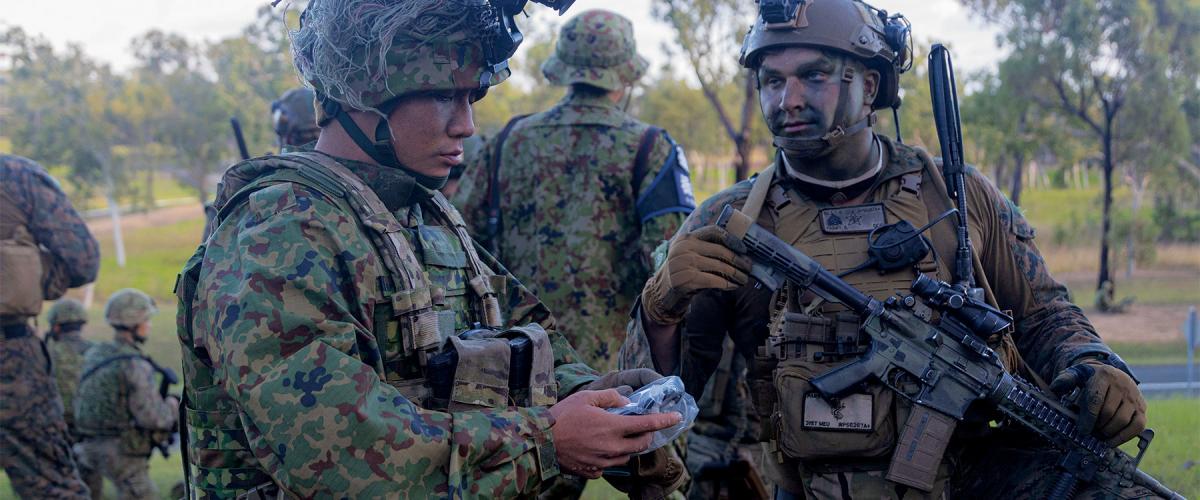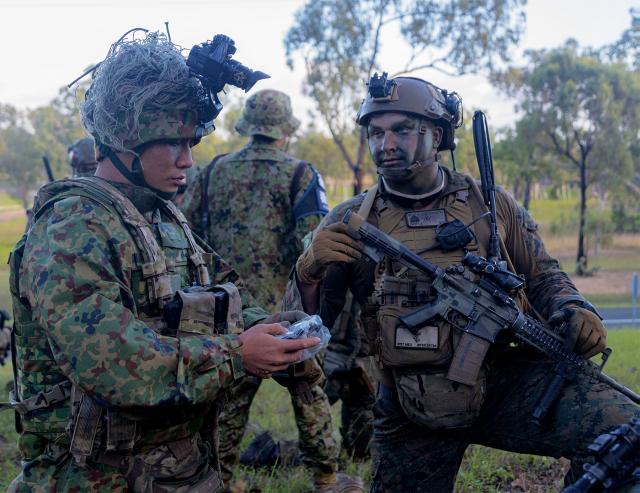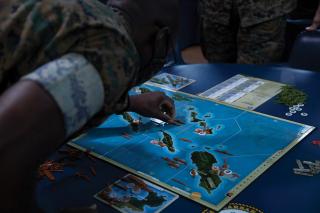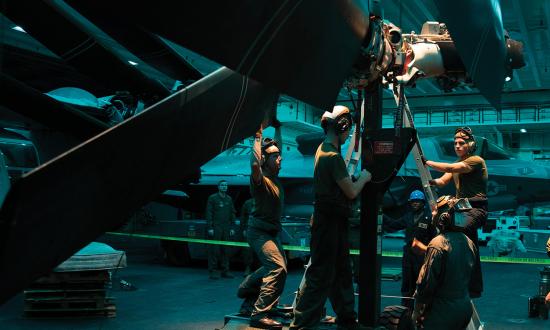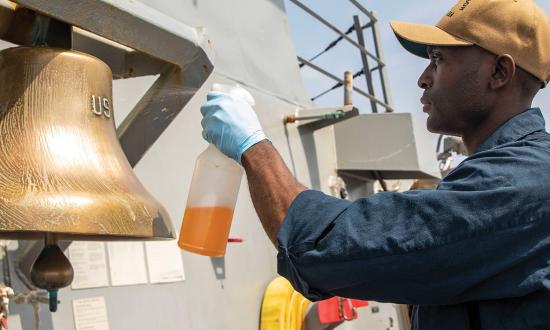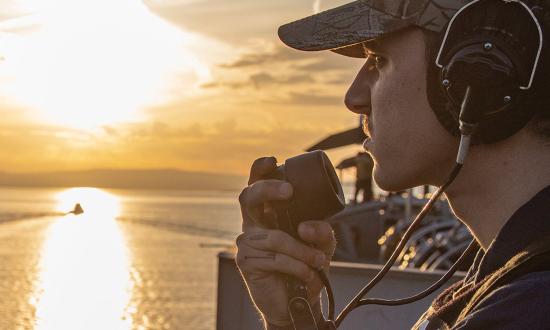Former Commandant of the Marine Corps General David H. Berger’s A Concept for Stand-in Forces states that China aims to increase its influence in Southeast Asia by using its growing power to force neighboring countries to accept its claims to disputed territories.1 At the same time, China is working to diminish U.S. influence and increase its control over nearby nations. For Marine noncommissioned officers (NCOs) to be effective in this new environment, their educational development needs to include lessons on the potential enemy’s doctrine and culture.2 Force modernization must include cultural education.
Recently, the People’s Liberation Army (PLA) has made an effort at modernization. In 2017, President Xi Jinping committed to elevating the PLA into a world-class force by 2049.3 By redistributing responsibilities from commissioned officers to NCOs and expanding professional military education (PME), the PLA plans to bolster its force by nurturing technical experts.
Now is a critical time for Marine NCOs to begin the process of adapting to outpace them. To adapt, NCOs must be proactive by studying adversaries and their neighbors, ultimately becoming informed leaders.
The Study of Anthropology in War
When Marines deploy to foreign soil it is essential to address knowns and unknowns. An area’s culture is a “known known” when planning for operations in a new theater, but for NCOs’ cultural education to be effective, the way it is taught needs to be restructured.
The strategist Carl Von Clausewitz wrote, “War is not merely a political act but a . . . continuation of political intercourse, a carrying out of the same by other means.”4 Marine Corps NCOs must learn about their future area of operations from experts to understand the warfighting style of their adversaries and the culture of local people they will encounter.
Anthropology—the study of human societies, their cultures, and their development—aims to provide a better understanding of how humans live.5 Its study develops a wide range of skills adaptable to different environments, which in turn can be used to build interpersonal skills among people of different cultures.6 The nations spread throughout the Pacific all have unique histories and cultural groups. Experts and unbiased publications could prove invaluable to Marine Corps units that will operate in a foreign environment. More cultural education would better prepare NCOs to adapt in these complicated environments, which in turn would positively affect those they lead.
Military Doctrine
An adversary’s military doctrine must be taught, discussed, and debated by leaders at every level. Captain Ellis Mark Zacharias made a concerted effort to study the Japanese Navy prior to World War II and immersed himself in its language and culture, studied the Japanese psyche, and collected intelligence on Japan’s naval strategy.7 His drive to understand the enemy resulted in him predicting the Japanese would launch a surprise attack on the United States in the Pacific on a Sunday morning. The attack on Pearl Harbor came on Sunday morning, 7 December 1941.
In the modern age, leaders have almost real-time access to open-source intelligence from around the world. Studying the enemy in the open-source environment can inform commanders about real-time operations. Marines who are taught to think critically and apply their specialties to an evolving strategy will be a powerful force on the growing information battlefield.
Teaching the Force
A characteristic of maneuver warfare is seeking to circumvent a problem and attack it from a position of advantage rather than straight on.8 Currently, the Marine Corps faces a deficit in the education needed to optimize the force and meet the requirements of a pacing threat. MCDP-1: Warfighting, while widely available, will be useful to Marines only if they are taught the importance of doctrine, strategy, and the efficacy of wargaming as often and as determinedly as they are trained physically. If discussion and debate are welcome and common, Marines will grow to be lifelong learners, teachers, and strategists.
As leaders, NCOs are responsible for the well-being of those under their charge. While physical training is a daily standard across the Marine Corps, teaching about the future of the Marine Corps is not. This must change. Weekly education that meshes current Marine tactics with adversary history and tactics, followed by informed wargaming, would produce fruitful thought and potential applications for the modernization of each military occupational specialty in the Marine Corps. In addition, NCOs should collaborate with other members of the NCO corps across every military occupational specialty to understand the full range of service operations—which will result in a working group prepared to wargame against an adversary’s tactics.
Consider logisticians. A logistician who does not prepare for contingencies pertaining to enemy tactics and potential disruptions in a future battlefield will fail when the time comes.9 Modern standard operating procedures are more abstract than tangible, which is why logisticians study the enemy and determine their most plausible course of action based on how they think before conflict erupts.10
Wherever the clime and place, it will be up to educated Marines to influence the civilian population they encounter, outmaneuver the enemy, and be masterful teachers in the art of war. Unless the Marine Corps education system evolves, Marines could become lost in the fog of war. The time is now for culturally adept NCOs who can counter adversary influence, negate overcrowding of information, and forge a new generation of Marines who can always be several steps ahead of their adversary.
1. Gen David H. Berger, USMC, A Concept for Stand-In Forces (Washington, DC: Headquarters U.S. Marine Corps, 2021).
2. Jennifer Rice and Erik Rob, China Maritime Report No. 13: The Origins of “Near Seas Defense and Far Seas Protection” (Newport, RI: U.S. Naval War College, 2021).
3. Philip C. Saunders et al., Chairman Xi Remakes the PLA: Assessing Chinese Military Reforms (Washington, DC: National Defense University Press, 2019), 782.
4. Carl von Clausewitz, On War, translated by J. J. Graham (Hertfordshire, England: Wordsworth Editions Limited, 1997).
5. M. G. Whisson, “Why Study Anthropology?” Anthropology Today 2, no. 1 (February 1986): 22–24.
6. Nate Stanley, “Anthropology: An Explanatory Method to Understand Our World,” in Why is the Study of Anthropology Important for Today’s World? (Houston, TX: University of Houston, 2012).
7. David A. Pfeiffer, “Sage Prophet or Loose Cannon?” Prologue Magazine 40, no. 2 (Summer 2008).
8. Marine Corps Doctrine Publication 1: Warfighting (Washington, DC: Headquarters U.S. Marine Corps, 2018).
9. Marine Corps Doctrine Publication 2: Intelligence (Washington, DC: Headquarters U.S. Marine Corps, 2018).
10. Marine Corps Doctrine Publication 4: Logistics (Washington, DC: Headquarters U.S. Marine Corps, 2023).



